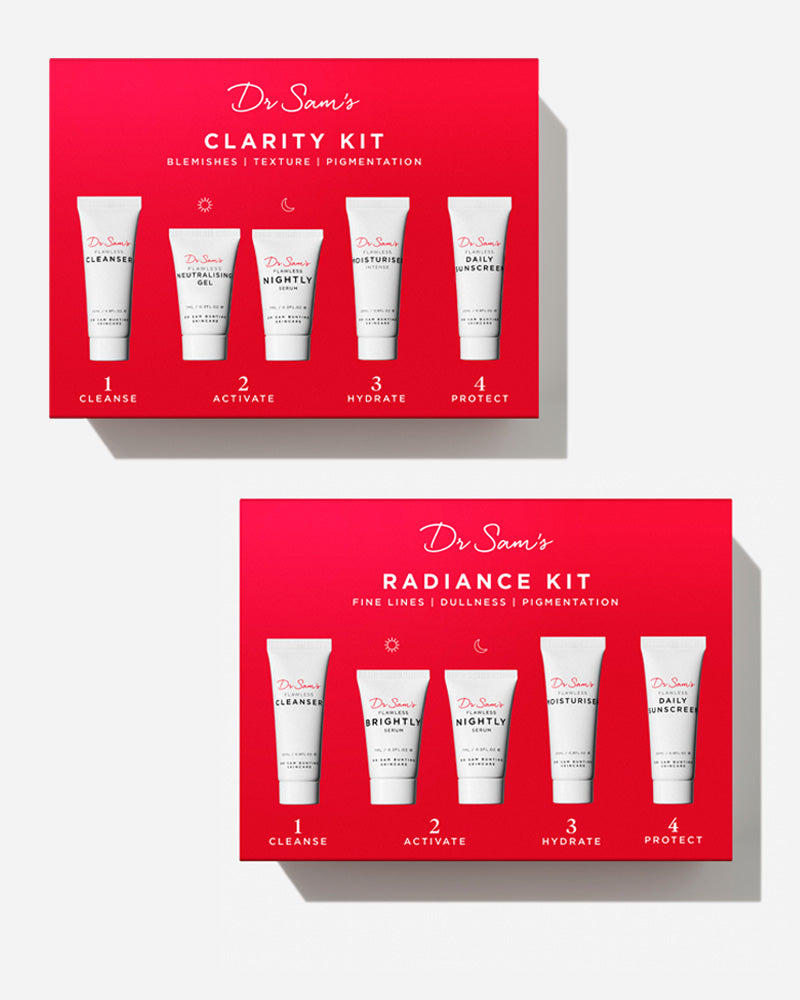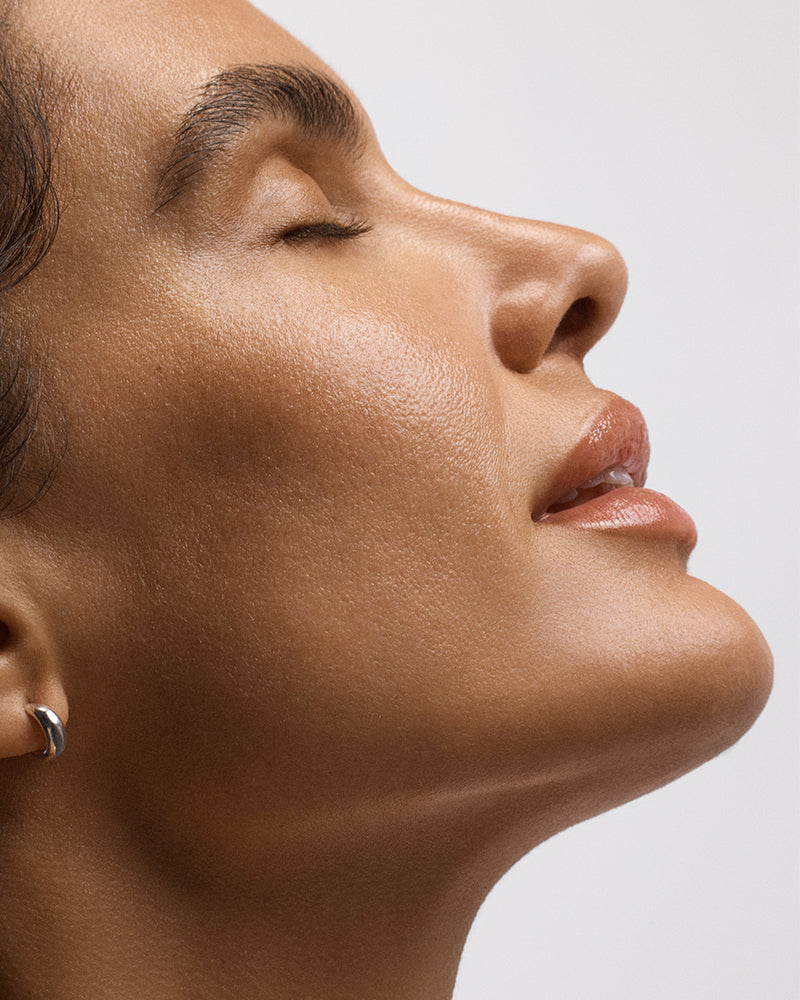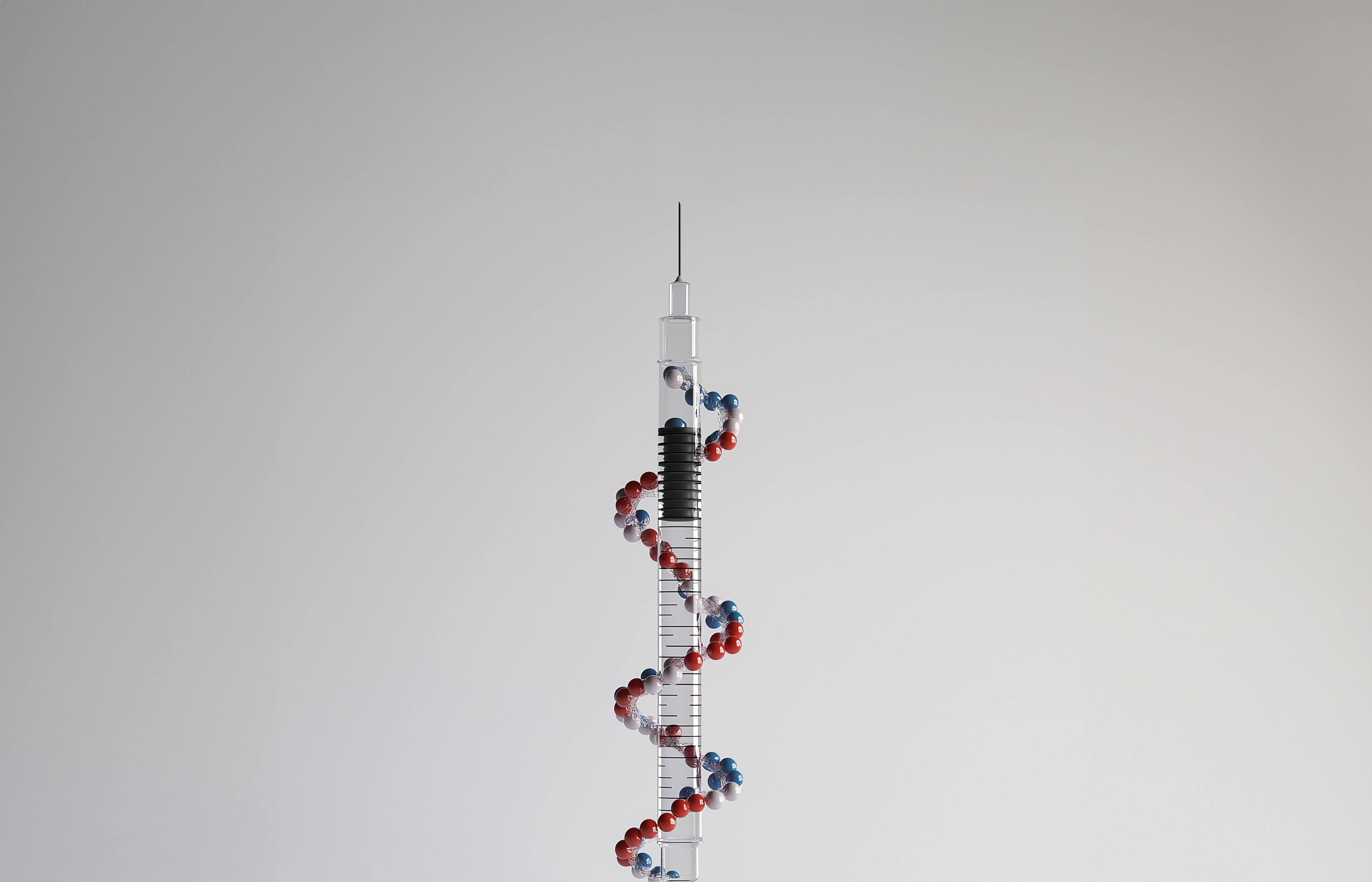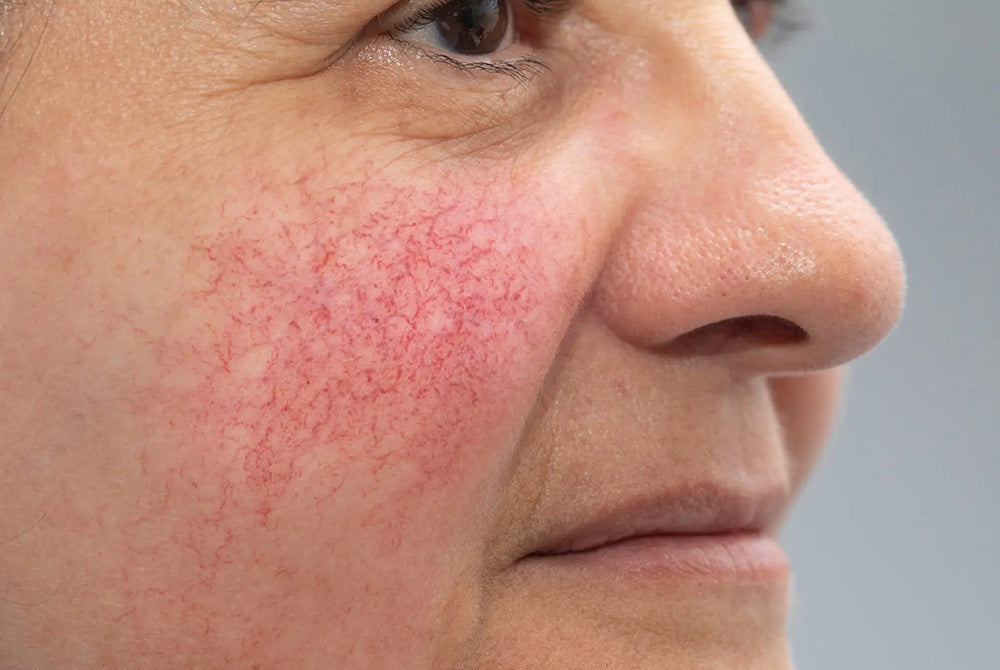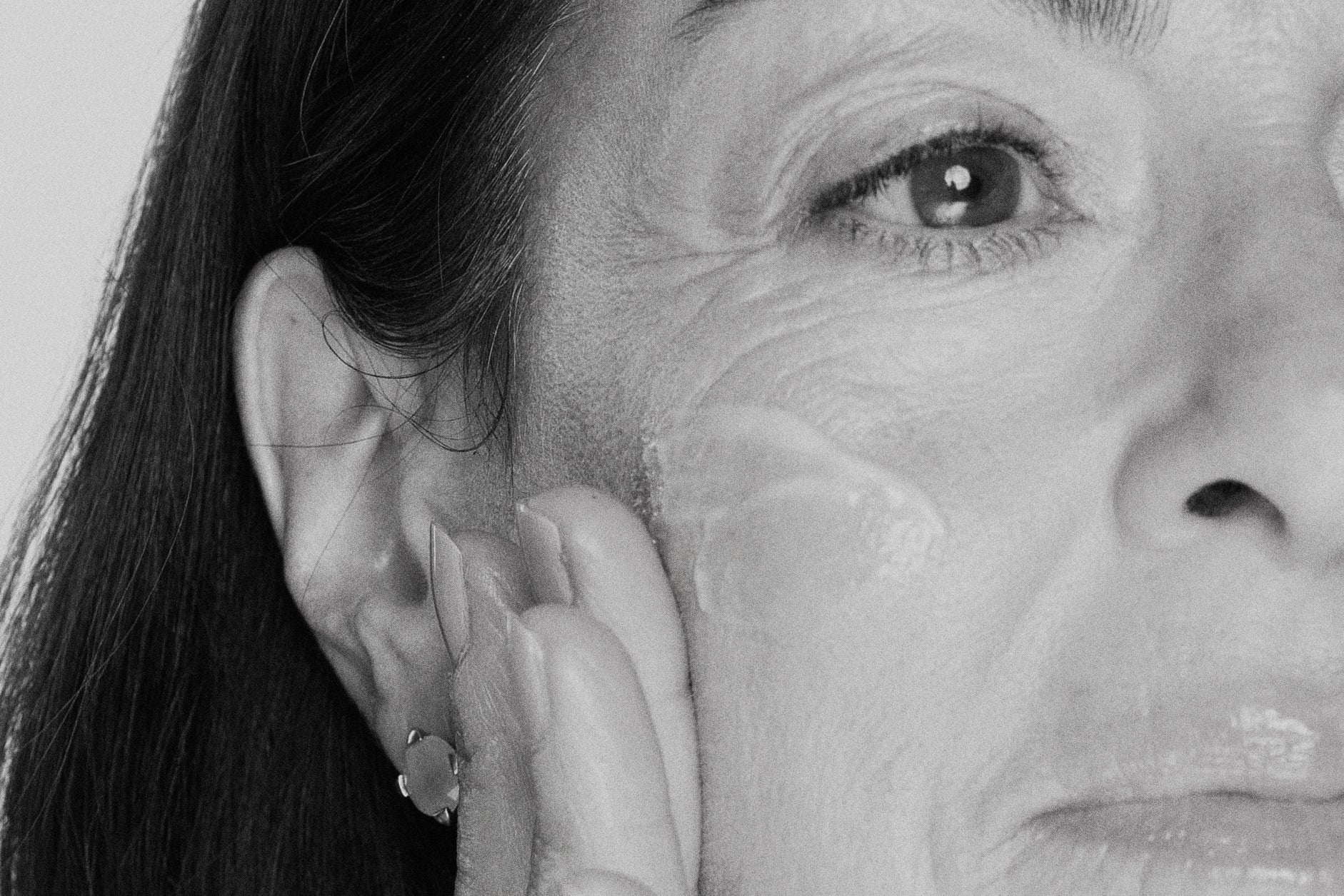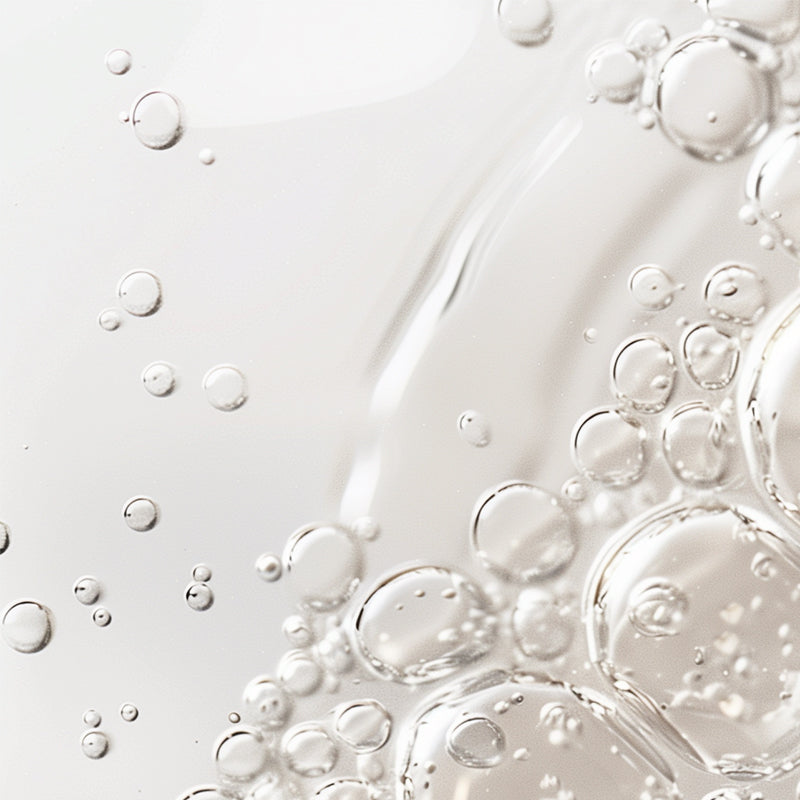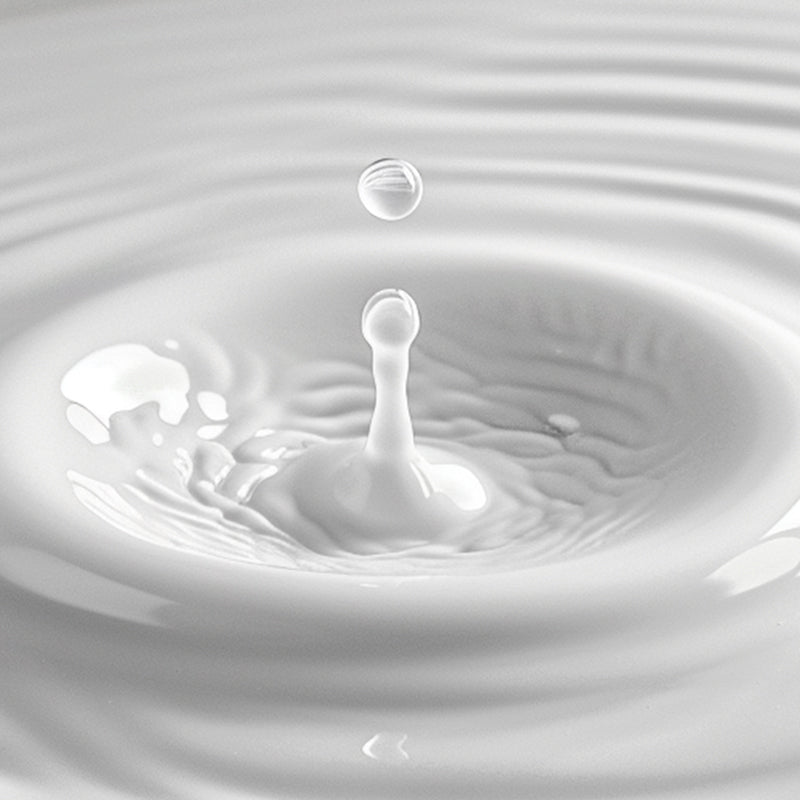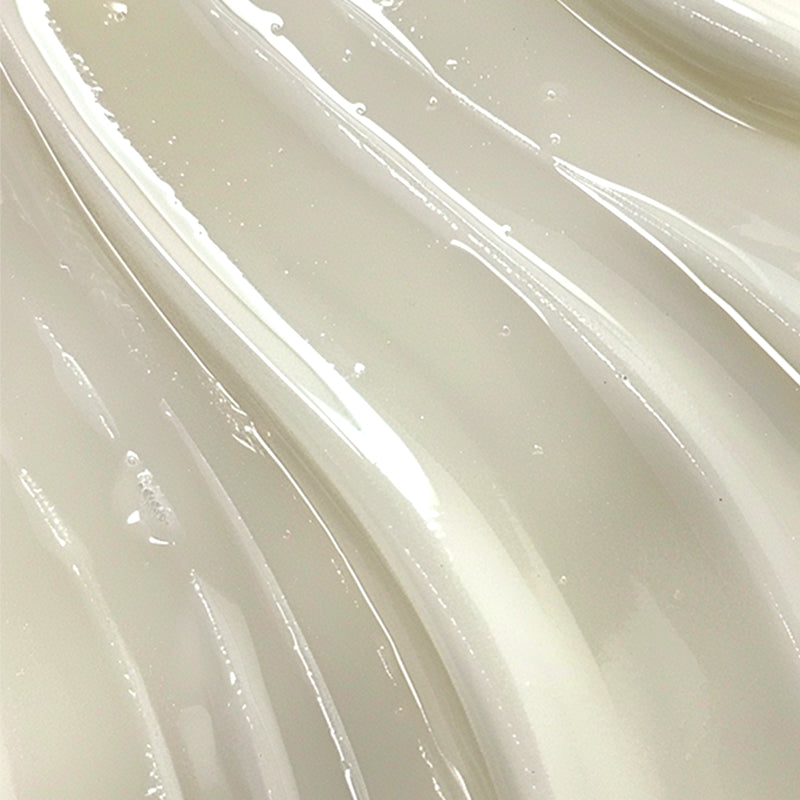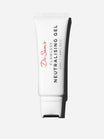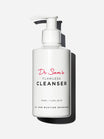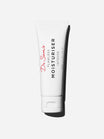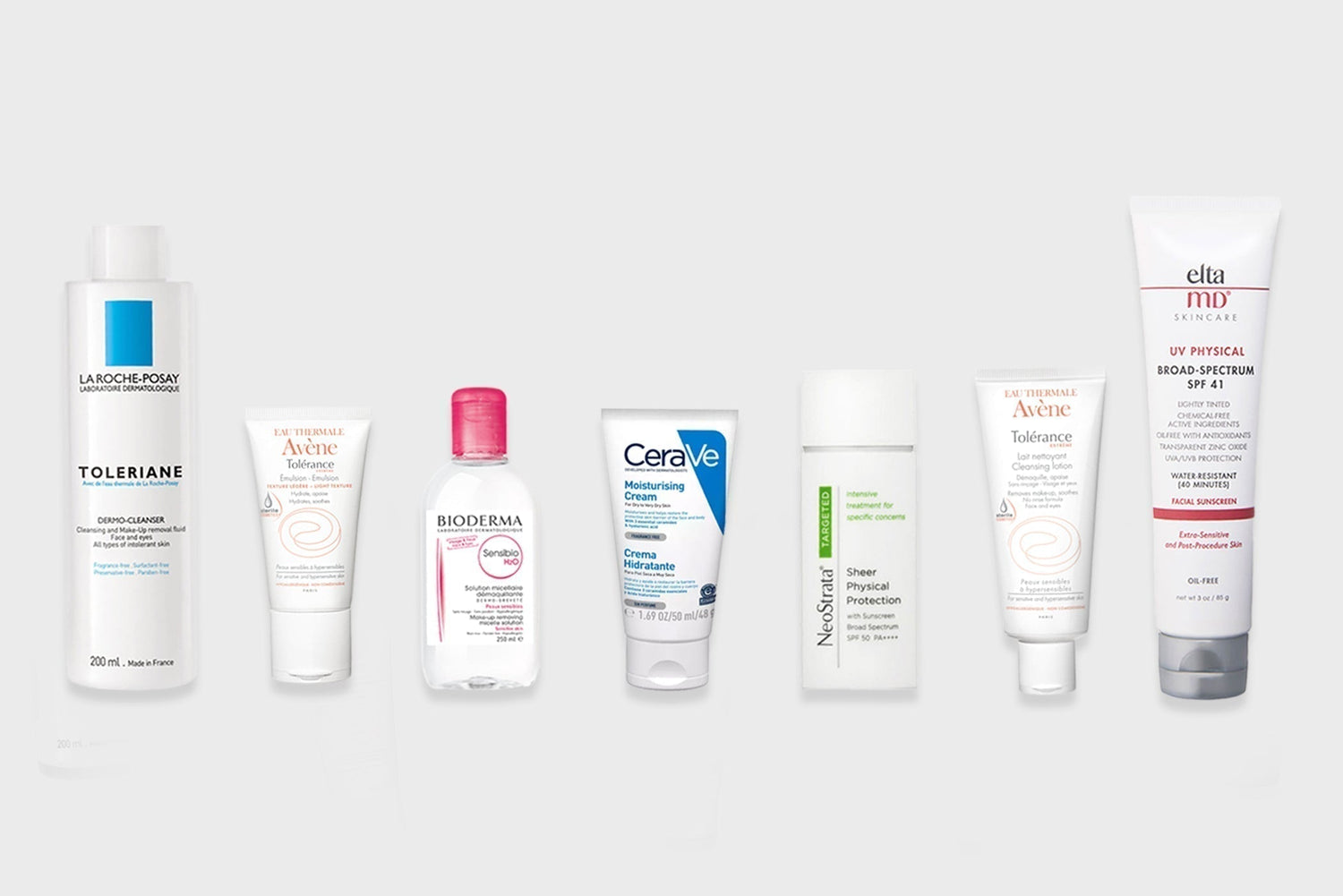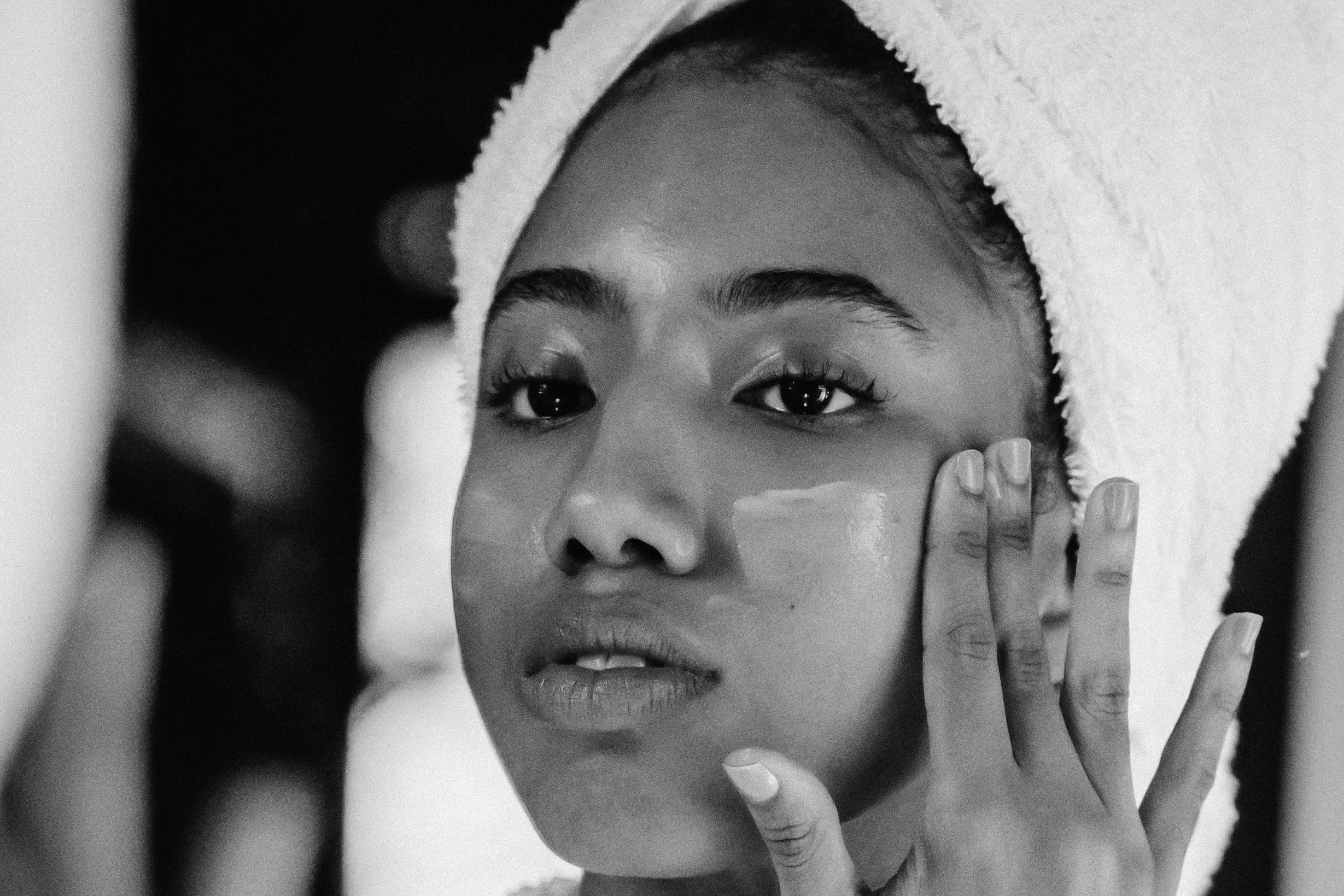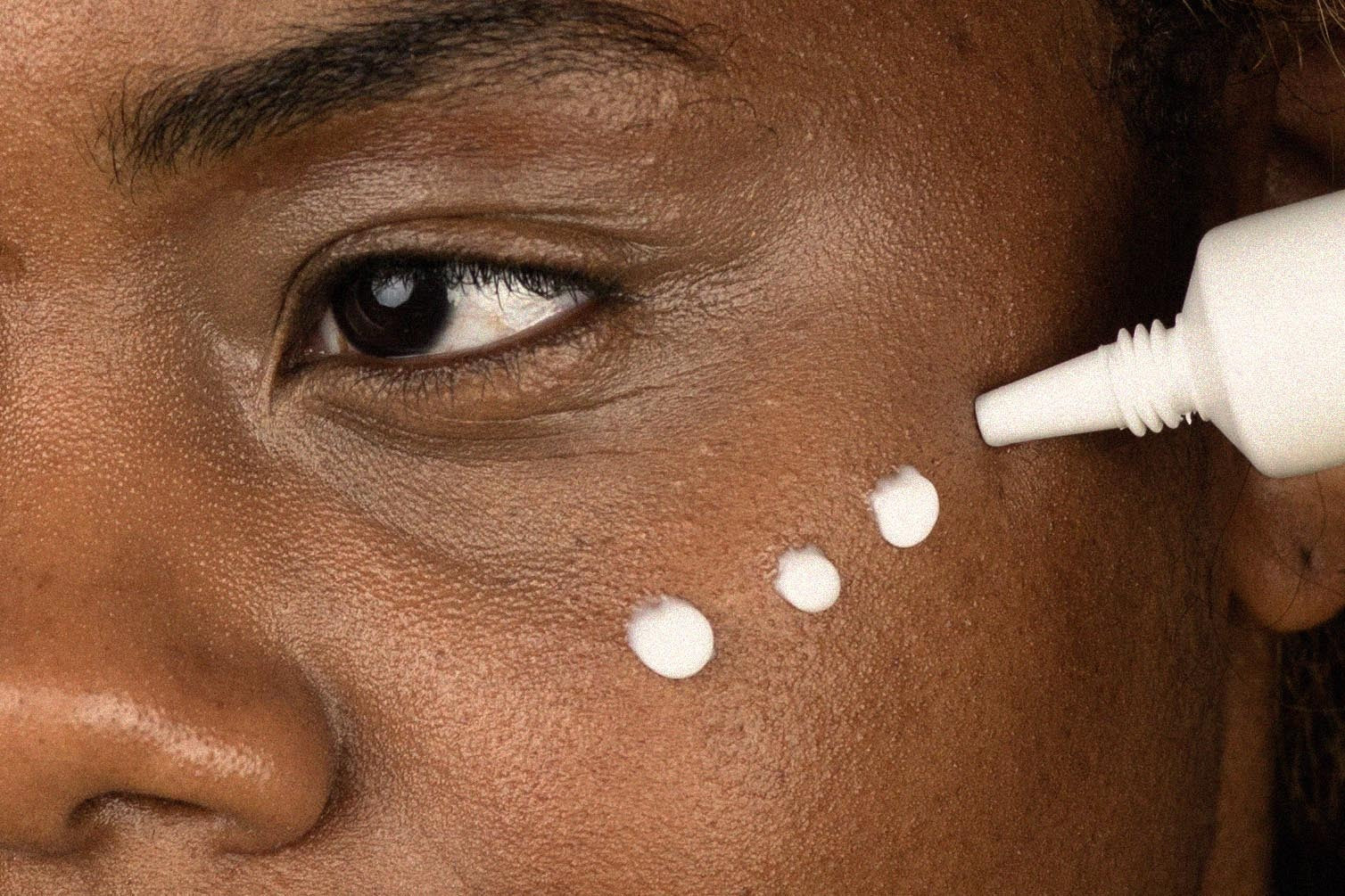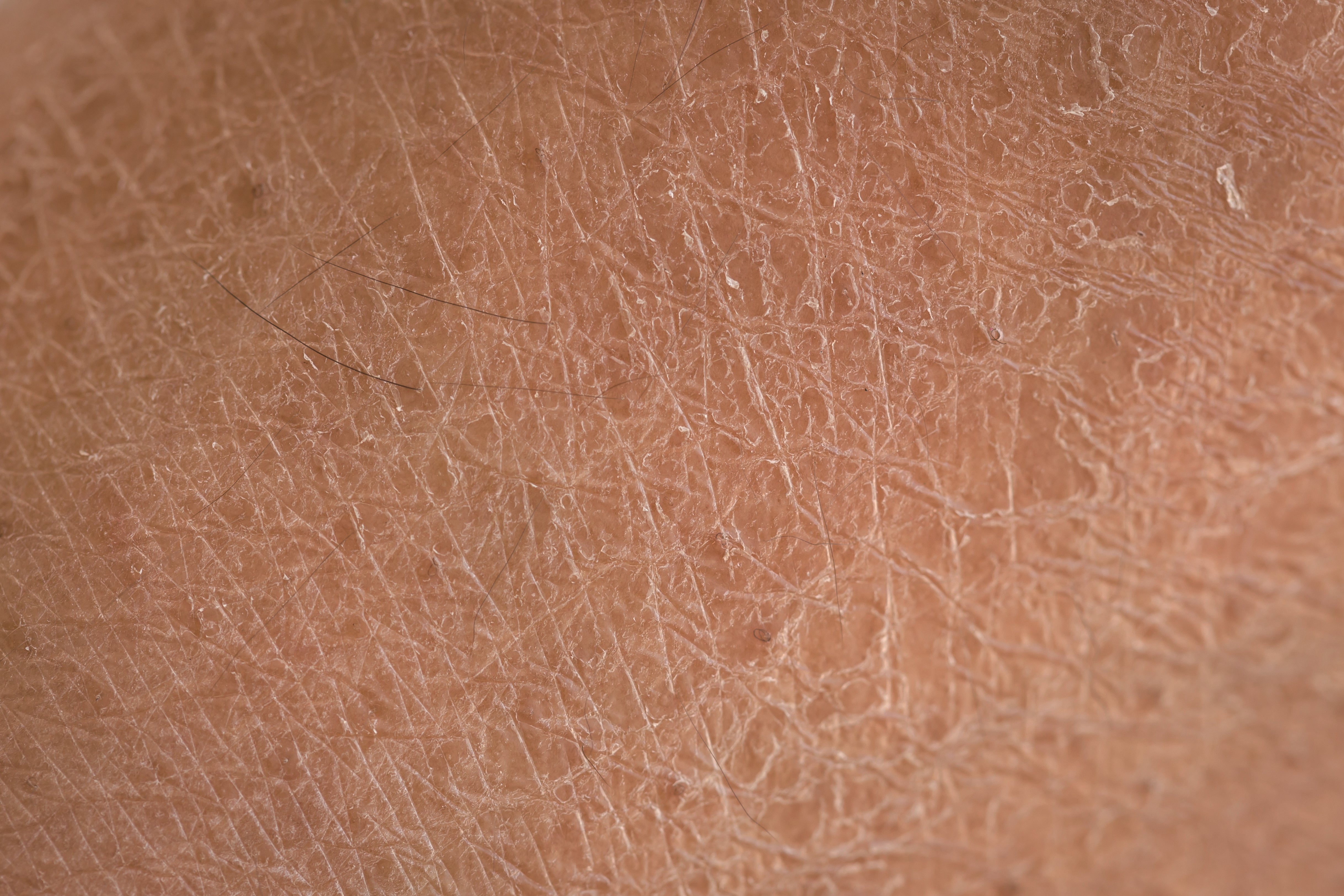In this final video in the Sensitive Series I’m going to show you how I go about rebuilding the skin's barrier, allowing skin to recover from a sensitive period, or perhaps the use of products that didn't suit your skin. This will then pave the way for you to start to build an active routine with confidence - which can be really hard when you've had setbacks or when you've reacted to certain ingredients or products.
When I see someone in clinic who's got reactive skin, the first thing I do is stop everything.
True allergy is always a possibility, of course - in which case I’ll arrange patch testing to identify the allergen. But I think for most people the approach of stopping and resetting can be the most practical way forward - then, rebuilding a routine with the least complicated products possible slowly, one product at a time. I’m pleasantly surprised by how often you can find a way forward and rebuild a routine without having to go to pursue further investigation. But sometimes it's necessary - each case is judged on its own merits.
How Do You Rebuild The Skin’s Barrier?
Let’s start with cleansing. I have a couple of products I reach for time and time again in this instance. La Roche Posay Toleriane Dermo Cleanser is the one we keep in the clinic for reactive, irritable skin. Super-simple. It has just eight ingredients, one of which is water and it's free of anything that's likely to cause irritability issues. It’s suitable for use around your eyes as well. Whilst it can be used without water, I usually recommend rinsing it clear with tepid water, and it can be used morning and night. If skin is very sensitive, you may want to skip your AM cleanse for a little while during this period of time, splashing it with water alone may suffice. As an alternative, I also like Avene Tolerance Extremely Gentle Cleanser, which has similar properties. Again, very few ingredients, nothing that's going to irritate, and it doesn’t need to contain preservatives because of the special packaging format.
In terms of preferred moisturisers, Iike Avene's Tolerance Control Soothing Skim Recovery Cream, which is squalene-based, so it's a lovely texture and there's no need for preservatives because of the type of packaging.
What If My Skin Is Very Inflamed?
There are instances where you want to shut inflammation down quickly. If someone’s been struggling for weeks and weeks, their skin will often have become so aggravated that “everything stings”. So I might use a mild topical steroid, like 1% hydrocortisone cream. If someone is very red, itchy, sore, angry patches of eczema, that sort of thing. And I will tend to approach the skin like this for some time. I might treat them with mild topical steroids for five to seven days and a little bit longer if necessary, but then I will bring them off the topical steroid and leave them on just their cleanser and moisturiser.
I’ll usually give it another week to make sure that things don't bubble up to the surface again, suggesting that we haven't eliminated the trigger.
So finally things are improving. Everything is feeling more settled, more calm. Like normal.
We can start to introduce some new elements. For eye makeup remover, I tend to stick to Flawless Cleansing Water, albeit rinsing off the residue with water after it's been used - this tends to be very well tolerated in most skin types so I will always have this in the kit.
The next step is to bring in broad spectrum sunscreen. In this situation I’ll often use mineral sunscreen, as it tends to be better tolerated in skin that’s misbehaving. I might well move onto a hybrid sunscreen later on, when the skin is completely settled but in this instance, the gentlest choice is going to be an all-physical sunscreen. I like Flawless Gossamer SPF50, which is specifically designed to be used after things like procedures, when the skin’s barrier is reduced. It's based on both zinc oxide and titanium dioxide. I also like Neostrata Sheer Physical Protection SPF50.
A tint can be very welcome if you've got a little bit of redness in your skin. It means you may be able to skip wear foundation. This can be helpful as occasionally make-up can potentially irritate, especially if your base has a little bit of fragrance in it, as they so often have. I’ll often hold fire here and give sunscreen another week or so to settle in before thinking about adding anything else into the routine.
We’re now at about week three - and that's the right sort of timeframe for the skin barrier to really start to rebuild. But if all is going smoothly at this point in time, I’ll then think about adding in a moisturiser that further assists with barrier building. And that might be something like Flawless Moisturiser Intense, which is clinically proven to heal your skin barrier from the first use. If your skin is happy and comfortable at this point, it’s a good sign suggesting that the skin is healing.
So now you start to have more options. You may find you’re able to move on to a more robust cleanser. A lot of people prefer the feeling of a gel-based cleanser, which is probably is a more effective cleanse when combined with water in the face of daily SPF.
By week four now, you’ll hopefully be feeling more confident. Even a little impatient. But it’s VITAL to take things week by week. No sudden changes, everything is planned in a considered way. It’s now a good time to think about adding in an Active. It of course depends on your skin type and what your main concerns are, but I find azelaic acid is one of the best entry level Actives to consider in this situation. In my Routine Finder, we've made Flawless Brightly Serum our go-to for those with sensitive skin, because the formula centres around azelaic acid. It’s a great anti-inflammatory, skin-calming ingredient, but it's also good for pigmentation and breakouts. Other actives you could consider introducing include niacinamide as I mentioned, which is good for pigmentation, for blemishes, and helps boost barrier function. And we can think about a gentle retinoid, but again, slowly, slowly; it's the kind of product you'd introduce every second, or even every third night. You might buffer with moisturiser first, use a pea-sized amount only, and really do it slowly, so that you're increasing the frequency of use and the quantity of use every two to four weeks.
So you're definitely in the slow lane, and that's okay.
With prescription skincare, I still think we have a lot of space to work with and sometimes prescription products are a little bit easier and more predictable to work with as they contain fewer ingredients. If you have sensitive skin and significant acne or rosacea, it’s often wise to get some help with routine building. Even just a one-off appointment can really help you have the confidence to go forward, building an effective routine for your skin to get the most out of your products safely.
So that's my approach to treating sensitive skin with some sensitivity, alongside the products I'd recommend to help you on that journey. I truly hope you found this overview of sensitive skin helpful, and that it helps you get the results that you want!

